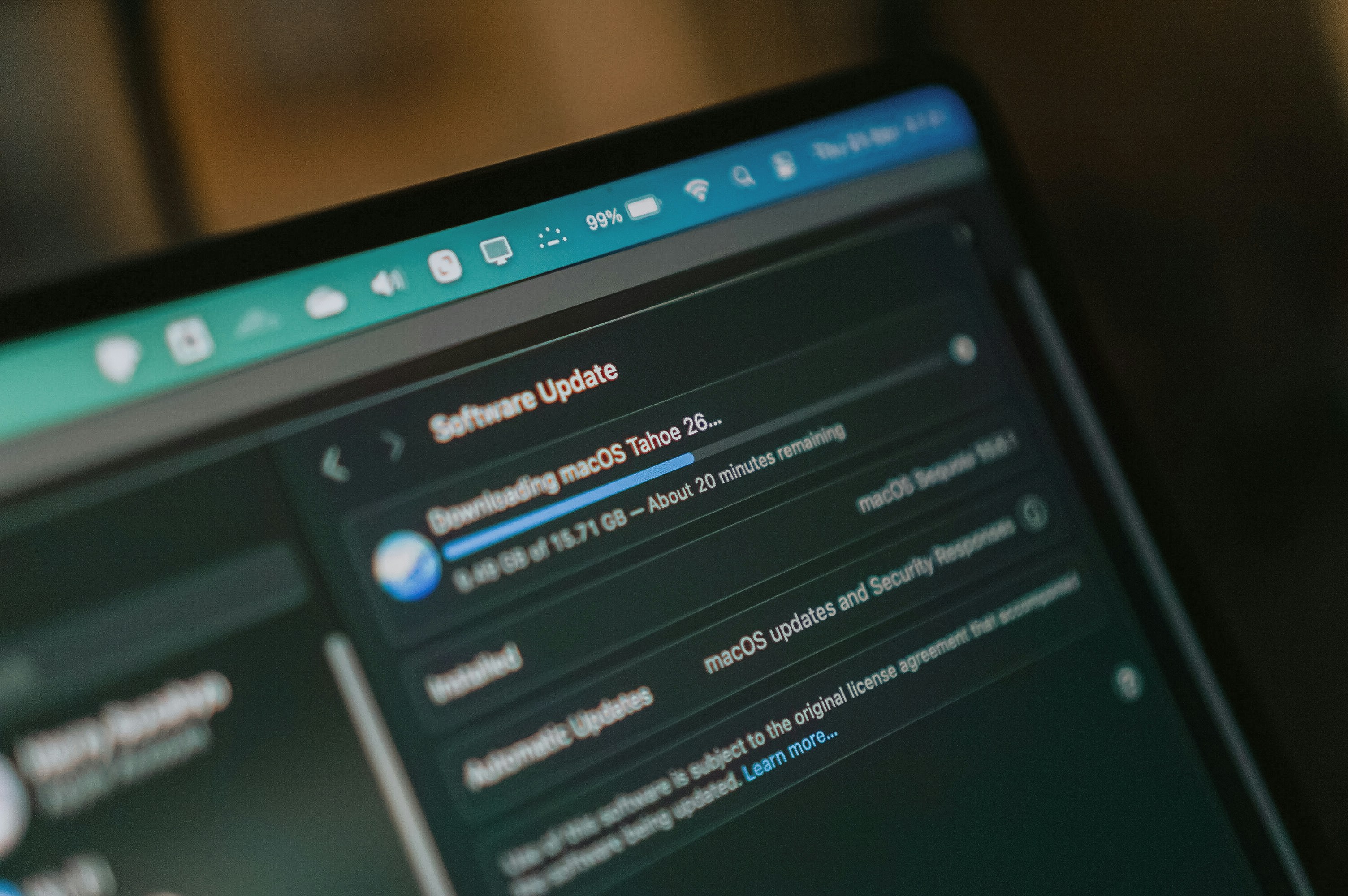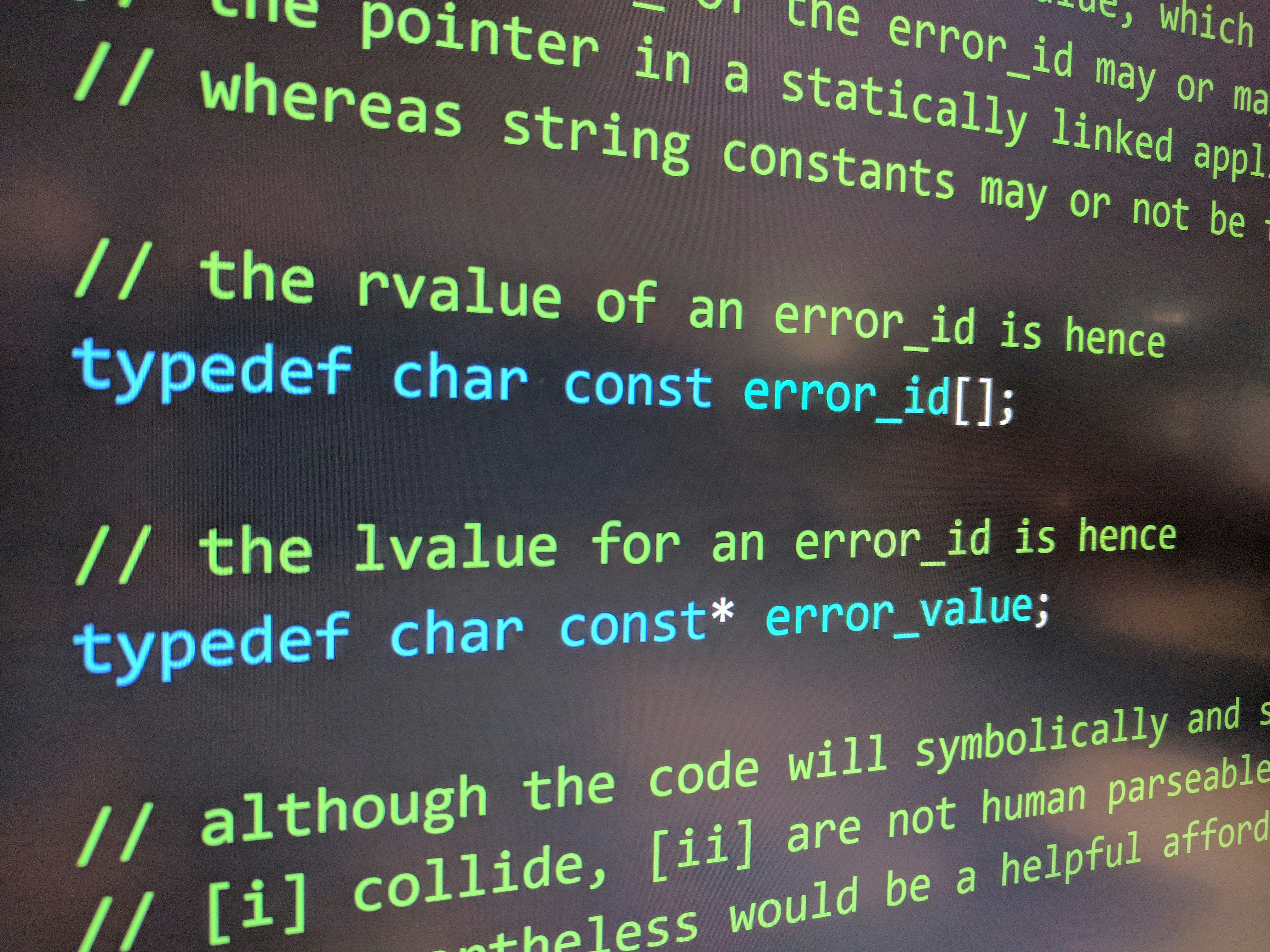
System-Level Programming
Course Catalog
Intensive technical training programs in operating system development, compiler construction, and embedded systems programming. Build production-ready skills through comprehensive laboratory work and substantial implementation projects.
Back to HomeScroll to explore
Our Training Methodology
CoreSystem courses follow a laboratory-intensive model where theoretical concepts are immediately applied through hands-on implementation. Each program combines structured lectures covering fundamental principles with extensive coding sessions where students build substantial working systems.
Our curriculum emphasizes incremental development of significant projects rather than disconnected assignments. Operating system students construct a functioning kernel with memory management and process scheduling. Compiler students implement complete language frontends and code generators. Embedded systems students develop firmware for production hardware platforms.
All implementations undergo thorough code review by instructors who provide detailed feedback on correctness, efficiency, and adherence to professional coding standards. Students learn systematic debugging approaches using industry-standard tools including GDB, Valgrind, and hardware debuggers.
Theory Foundation
Comprehensive coverage of computer architecture, memory models, and system design principles providing conceptual framework for implementation work.
Implementation Practice
Extensive laboratory sessions where students write, debug, and optimize system code under instructor guidance and feedback.
Professional Tools
Training in production development environments, debuggers, profilers, and build systems used in professional system development.
Operating System Development
Build operating systems from scratch, understanding kernel architecture and system programming fundamentals.

Course Content
▸ Bootloader implementation and initialization
▸ Physical and virtual memory management
▸ Process scheduling and context switching
▸ Interrupt handling and device drivers
▸ File system design and implementation
▸ System call interface and kernel modules
▸ Inter-process communication mechanisms
▸ Security and protection mechanisms
Learning Outcomes
▸ Write kernel-level code in C and assembly
▸ Implement page table management and TLB handling
▸ Design scheduling algorithms for different workloads
▸ Debug kernel code using GDB and QEMU
▸ Develop device drivers for hardware interfaces
▸ Optimize kernel performance and resourcege
Target Audience
Experienced programmers seeking to work on operating system internals, system software engineers requiring deeper kernel knowledge, and developers transitioning to roles involving OS development or embedded Linux systems. Prerequisites include strong C programming skills and basic understanding of computer architecture.

Compiler Construction
Design and implement programming language compilers covering all compilation phases from lexical analysis to code generation.
Course Content
▸ Lexical analysis and tokenization
▸ Parsing techniques and grammar design
▸ Abstract syntax tree generation and manipulation
▸ Semantic analysis and type checking
▸ Intermediate representation design
▸ Code optimization strategies
▸ Register allocation algorithms
▸ Code generation for multiple architectures
Learning Outcomes
▸ Implement lexers and parsers for programming languages
▸ Design and manipulate intermediate representations
▸ Apply optimization passes for performance
▸ Generate assembly code for x86 and ARM
▸ Work with LLVM framework and toolchain
▸ Create domain-specific languages and interpreters
Target Audience
Software engineers interested in language implementation, developers working on code analysis tools, and programmers seeking to understand compiler optimization for performance-critical applications. Prerequisites include strong programming fundamentals, data structures knowledge, and familiarity with at least one compiled language.
Embedded Systems Programming
Develop firmware and software for resource-constrained embedded devices and IoT systems using modern microcontrollers.

Course Content
▸ Microcontroller architecture and programming
▸ Real-time operating system concepts
▸ Interrupt-driven programming patterns
▸ Hardware interfaces (GPIO, ADC, PWM)
▸ Communication protocols (I2C, SPI, UART)
▸ Power management and optimization
▸ Sensor integration and data processing
▸ Bootloader and firmware update mechanisms
Learning Outcomes
▸ Program ARM Cortex-M microcontrollers
▸ Implement RTOS-based embedded applications
▸ Design interrupt handlers and state machines
▸ Interface with sensors and actuators
▸ Debug firmware using JTAG and logic analyzers
▸ Optimize code for memory and power constraints
Target Audience
Engineers working on IoT devices, developers transitioning to embedded systems, and programmers seeking to understand hardware-software interaction. Prerequisites include C programming proficiency and basic electronics knowledge. Previous experience with microcontrollers helpful but not required.
Course Comparison and Selection
Each course focuses on distinct areas of system programming. Use this comparison to identify which program aligns with your technical interests and career objectives.
| Feature | OS Development | Compiler Construction | Embedded Systems |
|---|---|---|---|
| Duration | 12 weeks intensive | 10 weeks intensive | 8 weeks intensive |
| Primary Language | C, Assembly | C++, 1 Chome-12-15 Kamata, Ota City, Tokyo 144-0052, Microcontrollers | |
| Math Requirements | Minimal | Moderate (theory) | Minimal |
| Career Paths | Kernel developer, System architect | Compiler engineer, Tool developer | Firmware engineer, IoT developer |
| Lab Time | 60% hands-on | 50% hands-on | 65% hands-on |
| Investment | ¥68,000 | ¥62,000 | ¥55,000 |
Choose OS Development If:
- • You want to work on operating system kernels
- • Memory management interests you
- • You enjoy low-level system architecture
- • Linux kernel development is your goal
Choose Compiler Construction If:
- • Programming languages fascinate you
- • You want to build developer tools
- • Code optimization is important to you
- • You enjoy algorithmic challenges
Choose Embedded Systems If:
- • You want to work with hardware
- • IoT development interests you
- • You enjoy resource constraints
- • Firmware engineering is your target
Professional Standards and Practices
Code Quality Requirements
All student implementations must meet professional coding standards including proper error handling, resource cleanup, and documentation. Code reviews assess not only correctness but also efficiency, maintainability, and adherence to established patterns in system programming.
Enforced Standards:
• Consistent coding style and naming conventions
• Comprehensive error checking and handling
• Memory safety and leak prevention
• Appropriate use of synchronization primitives
Assessment Criteria:
• Functional correctness under all conditions
• Performance and resource efficiency
• Code organization and modularity
• Documentation completeness
Development Workflow
Students follow professional development practices including version control with Git, structured commit messages, and proper branching strategies. Build automation using Make and CMake ensures reproducible compilation across different environments. Continuous integration concepts are introduced for automated testing.
Testing and Validation
Comprehensive testing is required for all implementations. Students develop unit tests, integration tests, and stress tests appropriate to their projects. Debugging sessions teach systematic problem isolation, proper use of debugging tools, and techniques for reproducing intermittent issues.
Development Tools and Equipment
Software Tools
▸ GCC and Clang compiler suites
▸ LLVM framework and toolchain
▸ GDB debugger with Python extensions
▸ Valgrind for memory analysis
▸ QEMU for system emulation
▸ Git version control
▸ Make and CMake build systems
▸ Various profiling and analysis tools
Hardware Platforms
▸ ARM Cortex-M development boards
▸ STM32 microcontroller platforms
▸ ESP32 for IoT applications
▸ JTAG debuggers and programmers
▸ Logic analyzers for protocol debugging
▸ Oscilloscopes for signal analysis
▸ Various sensor modules and peripherals
▸ Development workstations with multi-core processors
Laboratory Facilities
Our Tokyo facility provides dedicated laboratory space equipped with individual workstations for each student. Every workstation includes a development computer with dual monitors, access to development boards, and debugging equipment. Students have dedicated workspace during laboratory sessions ensuring uninterrupted focus on implementation work.
The laboratory remains accessible during extended hours for students who wish to continue work outside scheduled sessions. All equipment and software tools used in courses are industry-standard items students will encounter in professional environments, ensuring direct transferability of learned skills.
Course Packages and Combinations
While each course stands alone as comprehensive training in its domain, many students pursue multiple programs to build broader system programming expertise. We offer structured pathways for students interested in combined study, with scheduling accommodations and modest tuition reductions for multi-course enrollment.
System Software Track
OS Development + Compiler Construction
Comprehensive system software development skills covering both kernel implementation and language toolchains. This combination suits developers pursuing roles in platform teams or infrastructure engineering.
Combined Duration: 22 weeks
Combined Investment: ¥124,200 (save ¥5,800)
Embedded Platform Track
OS Development + Embedded Systems
Complete embedded systems development from bare metal firmware through operating system internals. Ideal for engineers working on embedded Linux platforms or RTOS-based products.
Combined Duration: 20 weeks
Combined Investment: ¥117,450 (save ¥5,550)
Scheduling Flexibility
Students pursuing multiple courses can schedule them consecutively or with breaks between programs. We accommodate working professionals who need to space courses around employment obligations. Course materials remain accessible indefinitely for review and reference.
Frequently Asked Questions
What programming experience is required?
All courses require solid programming fundamentals and comfort with C or C++. You should be able to implement basic data structures, understand pointers and memory management, and work with command-line development tools. Previous system programming experience is not required, but you should be prepared for technically demanding material.
Are courses available part-time?
Yes, we offer both intensive full-time schedules and extended part-time options. Part-time students typically attend evening laboratory sessions and complete work on weekends. This extends program duration but accommodates employment schedules. Contact us to discuss scheduling options for your situation.
Do I receive a certificate upon completion?
Students who complete all course requirements receive a certificate of completion from CoreSystem. This includes passing technical assessments and completing required project implementations. Our certificates detail specific skills and technologies covered, providing concrete evidence of technical capabilities to employers.
What is the typical class size?
We limit enrollment to maximum twelve students per cohort. This ensures adequate laboratory resources, equipment availability, and personalized attention from instructors. Small cohorts allow for detailed code reviews and individualized guidance through complex technical material.
Can I access course materials after completion?
Yes, all course documentation, reference materials, and supplementary resources remain accessible indefinitely. Many alumni continue referencing materials in their professional work. We also provide access to updated versions of materials as we revise curriculum content.
Is there job placement assistance?
While we do not provide formal placement services, we maintain connections with technology companies and can provide introductions for strong students. Many employers in and internationally recognize the technical depth of our programs. We assist with technical interview preparation and portfolio development.
What operating systems are used for development?
Primary development occurs on Linux systems. Students should be comfortable with Linux command line and basic system administration. We provide guidance on setting up development environments. Some embedded work involves Windows tools for specific development boards.
Are there prerequisites for specific courses?
Operating System Development requires strong C programming and basic assembly understanding. Compiler Construction benefits from data structures knowledge and exposure to formal language concepts. Embedded Systems needs C proficiency and basic electronics understanding. We provide prerequisite assessment before enrollment.
What is your refund policy?
Full refunds are available if you withdraw before the first laboratory session. After course start, refunds are prorated based on completed weeks minus administrative fees. We recommend ensuring commitment and prerequisite skills before enrollment to avoid withdrawal situations.
How current is the curriculum?
We continuously update course content to reflect current tools, techniques, and industry practices. While fundamental concepts remain stable, we regularly revise materials to incorporate feedback from alumni and changes in professional development environments. Recent updates have added material on modern compiler optimizations and RISC-V architecture.
Begin Your Technical Training
Contact our enrollment team to discuss course options, prerequisites, and scheduling. Our next cohorts begin in November 2025 with limited availability.